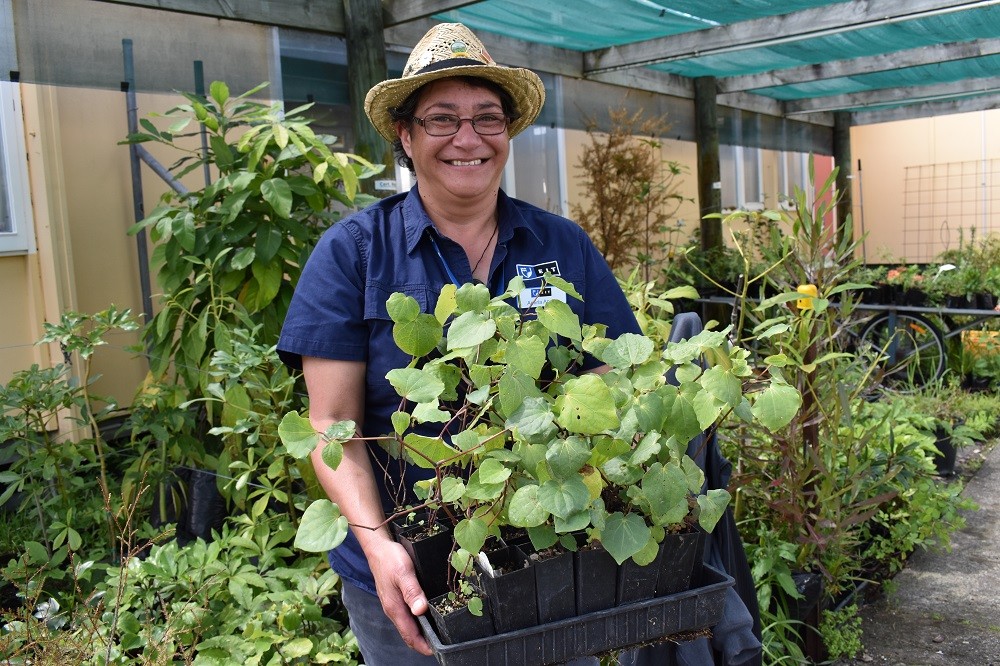
Amiria Nepe-Apatu shares with her students her knowledge of traditional food gathering.
This year, EIT has launched a Certificate in Māori Traditional Food Production, Harvest and Management at the regional learning centre in Waipukurau. The traditional food, or mahinga kai, course was such a success that EIT will offer it again in February.
Amiria Nepe-Apatu (Ngāti Kahungunu, Rangitāne) ran the programme with incredible passion. Born and bred in Takapau, twenty minutes from Waipukurau, Amiria has been a teacher for all her adult life. She taught different levels from early childhood to adult learners, worked as a te reo and kapa haka teacher and taught for many years in the Kura Kaupapa Māori in Takapau.
Amiria also brings a profound knowledge of tikanga and mātauranga Māori, and was thus shoulder tapped to teach on the mahinga kai course.
The guiding principle of the programme was the maramataka, the Māori lunar calendar. “We used a maramataka app and all our activities were consistent with the phases of the moon,” explains Amiria
As one of the first projects the students turned the ragged veggie patch adjacent to the learning centre into a blooming and thriving kai and rongoā (traditional Māori medicine) garden. “We planted different crops, kumara, kamokamo and all sorts of veggies, herbs and healing natives such as kawakawa, kākābeak and mānuka.”
Amiria taught her students about the three sources of food, moana (ocean) maara (land) and ngahere (forest/bush) and how to gather food in a sustainable and responsible way.
“My goal is to instill in my students the idea that we are kaitiaki of the land and we have to value our natural resources.” Amiria was thrilled to see that students – apart from learning the ins and outs of traditional food gathering – also reconnected with themselves. “Everyone just felt important, valued and part of greater whole.“
The group also worked in the community garden in Waipukurau, went for bush walks and grew kōwhai and totara seedlings. Amiria showed the students how to use traditional tools such as digging sticks (kō) and they mapped the area to record where they had sourced their food. Preparing (and indulging in) their carefully planned dishes rounded off the programme. The next intake will be starting in February, classes are Monday, Tuesday and Wednesday, 9 – 3. It’s fees-free.

